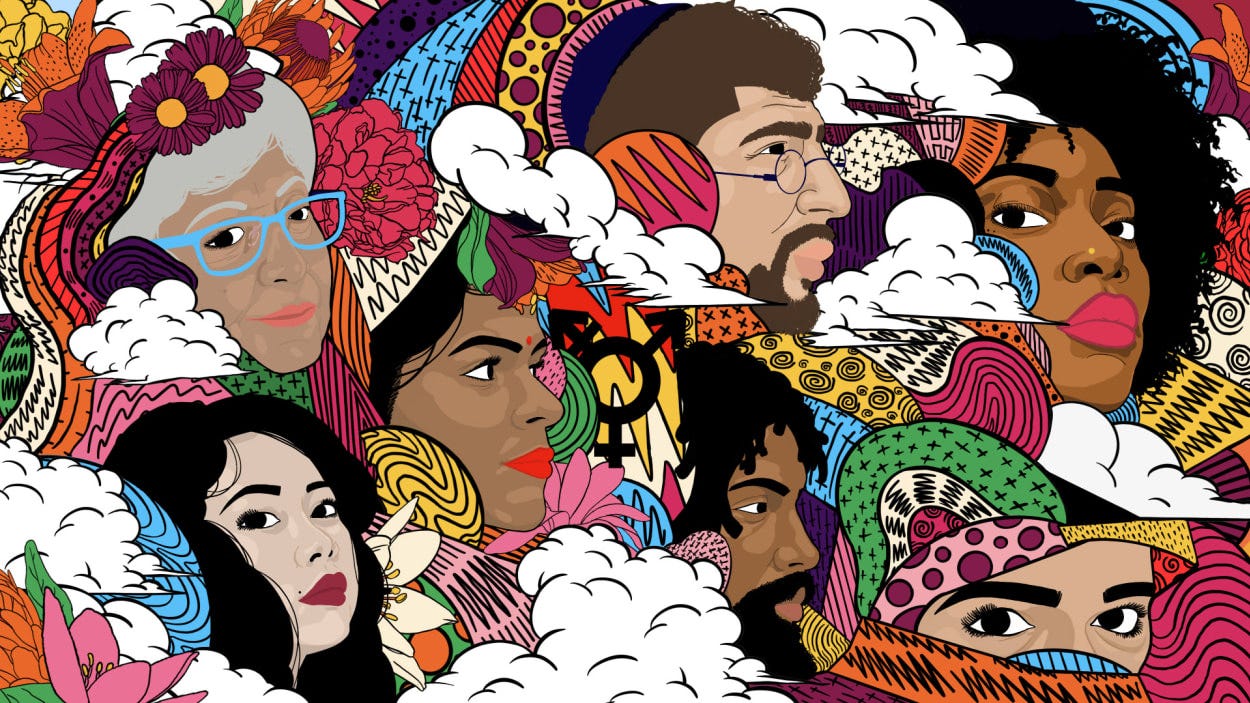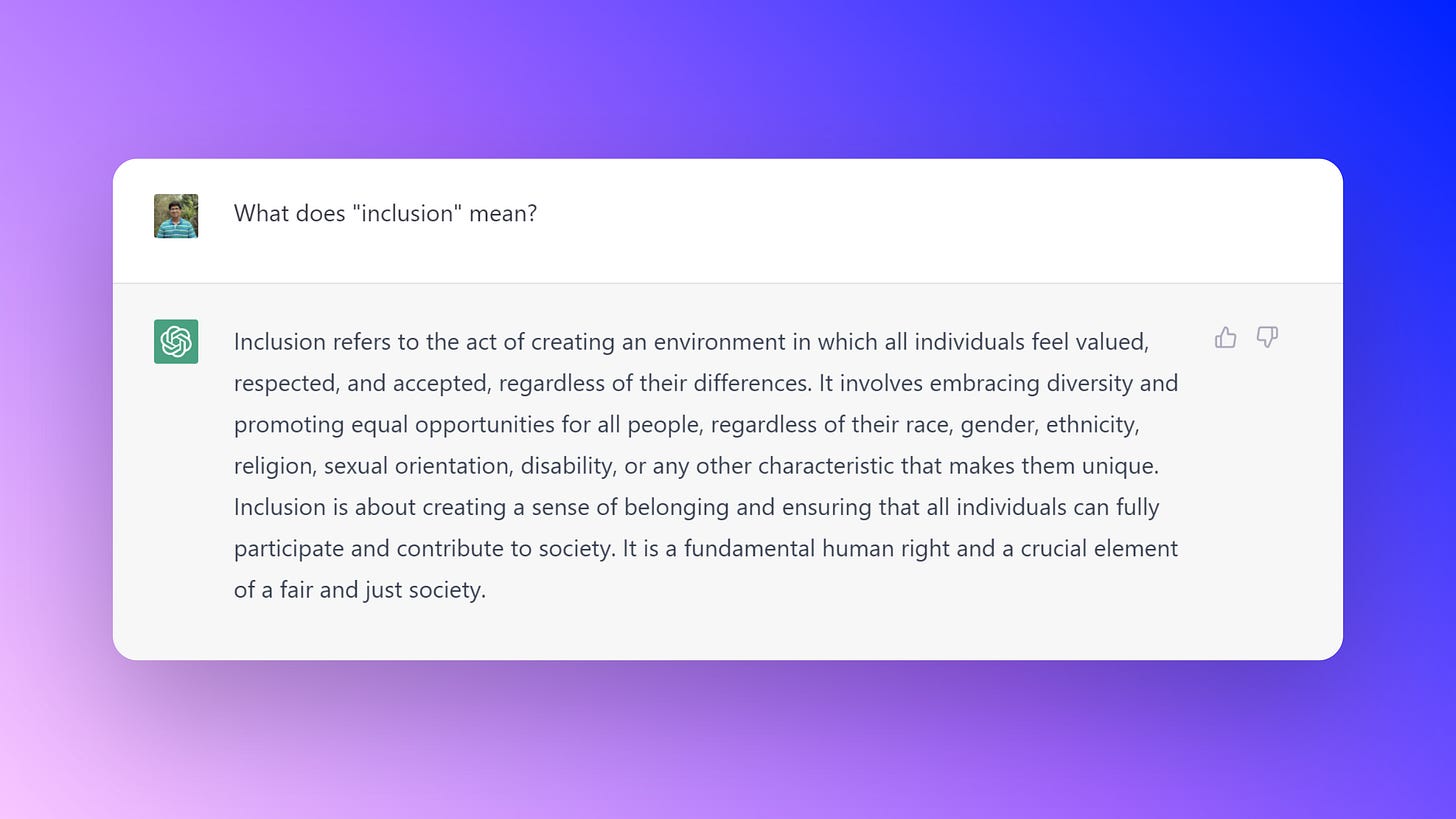Being A Better Ally In The Workplace And Beyond
Unfortunately, we live in a world where some people are not kind to others because of who they are or where they come from. This is not right or fair; however, a lot of us tend to accept the status quo as it is. This challenge definitely extends to our workplaces too, where it is absolutely imperative for us to ensure that these remain safe spaces for everyone.
Such differences and problems are caused by power imbalances coming from people who abuse the privileges they have due to social conventions and stereotypes around gender, race, economic status, etc., that have been created over the years. The truth is that while these conventions and stereotypes exist, it is not necessary to partake in them. We can challenge the status quo where necessary, especially in places such as our homes, schools, workplaces, neighbourhoods, etc., and other places where we hold substantial presences.
Therefore, in this newsletter issue, we will discuss what it means to be an ally and how we can be better allies in our workplaces and beyond.

Understanding Inclusion 🕺💃
Before we understand what being an ally means, it is necessary to understand what inclusion means. For that matter, I’m particularly fond of a quote I once came across:
“Diversity is being invited to the party.
Inclusion is being asked to dance.”Vernā Myers (VP, Inclusion Strategy at Netflix)
You see, when we talk about inclusion, it goes a step further from just having a seat in the meeting room to getting the mic to speak. It means ensuring that the presence of everyone in the room counts for more than just an attendance check.
Considering the tech-enabled world we’re a part of, at this point, I had to ask ChatGPT what inclusion meant as well. The answer was actually quite good!
I don’t entirely agree with this definition, though. There’s one particular thing that I cannot stand by, and that is the constant usage of the term “equal”. The reason I say so is that, unfortunately, due to how imbalanced our systems are at the moment, providing the same resources, opportunities, or benefits may not lead to the same outcomes. In order to have truly fair systems, it is necessary to prioritize support and focus on the growth and advancement of the persecuted groups so that we can achieve “equity”.
Equality vs Equity
This can seem a little confusing at first look, so to explain the difference between equality and equity, I shall use the example in the image below. Both scenarios feature the same setting. there is a baseball match happening. Behind the boundary wall of the ground where the match is taking place, there are three individuals standing: an adult, a young child, and a toddler. They are attempting to peep over the boundary wall to watch the match.
In the left half of the picture, all the individuals receive a box each to stand on. The adult is quite tall and easily towers over the wall, thus being able to watch the match. The young child reaches just above the wall’s height and is also able to watch the match. The toddler, however, is very short and cannot watch the match even after standing on the box. Thus, providing an equal number of resources does not provide the same outcome for everyone. This is how equality works.
In the right half of the picture, the number of boxes provided to each individual is changed. The adult receives zero boxes; however, their height enables them to reach above the wall’s height anyway. The young child receives one box again and is able to watch the match. The toddler receives two boxes this time (instead of one), which allows them to reach above the height of the wall and watch the match too. Providing an unequal number of resources to everyone based on necessity allows them all to achieve the same outcome. This is how equity functions.
Being A Good Ally 🤝
In any imbalanced system, we have people who are persecuted as well as people who are privileged. An ally is someone who is a part of the privileged group, someone who has power and authority and chooses to exercise that to support and take action to help others in the persecuted group.
Allies play an especially important role in making our systems and workspaces more inclusive for all. It really takes a lot of courage to stand against systems where the status quo benefits someone for no other reason than who they are. And yet, allies uphold the moral responsibility of creating safer and fairer spaces for all.
If you are someone learning to be an ally in your workplace, here are a few things you should do:
Recognize privilege and the power it brings
The reason we have imbalanced systems is because of differences in privilege. It is necessary to recognize the power and authority privilege brings in social scenarios and exercise it in an ethical manner only.Stop putting people into boxes
Most of us have grown up hearing about all kinds of stereotypes about people. You have to make the conscious effort to reject those as they come, for each person is who they are rather than a caricature drawn by society for their own amusement.Go out of the way to involve unspoken voices
Imbalanced systems often suppress the voices of people who may not fit the conventional image of how a person should be or look in a certain position or role. This is why if you notice voices going unspoken or people getting left unconsidered, go out of the way to include them.Do not make assumptions
It’s a really good thing if you aren’t putting people into boxes, but it is just as important to ensure you don’t assume their choices, perspectives, or opinions either. Doing so can also lead a person(s) to suppress their opinions in the future.Listen, listen, listen
I cannot emphasize more on this. The best way to solve most of our problems around assumptions is to build a habit of actively listening and responding accordingly rather than just reacting to situations.
Don’t compromise where you shouldn’t
While it is alright to find solutions that allow different groups to co-exist without conflict, do not compromise when situations question your moral and ethical sensibilities. At the end of the day, an ally must take the hard calls and stances where necessary.Acknowledge other people’s wins
A big part of sharing power across groups is acknowledging the successes of others. Celebrating wins is a major form of validation that says that the person (whose wins are being appreciated) matters and has importance in the workspace.Continuously ask for feedback
As allies, we may mean well when we act to help. However, it is necessary for us to understand whether we’re taking assistive actions or hampering a group’s progression. The best way to do that is by asking for feedback and taking constructive criticism from people part of the group(s) we’re advocating for.Keep learning
We live in an ever-evolving world where we’re seeing more suppressed voices rising and more unheard perspectives being shared. It is necessary for us to learn constantly to ensure we’re growing as individuals and allowing our definitions of right and wrong to evolve along with us.Enable more people to become allies
Being an ally is a rather fulfilling but often lonely responsibility. If you’re a lone ally in your space, enable more folks to become allies too. We always need more allies around us, as these are not small battles we’re fighting by any means.
There is only one “not-to-do” I will explicitly mention here. Please do not ally only when you need something! Unfortunately, a lot of people try to do this when they need to rally support for selfish reasons, and it only creates more distrust and division between groups.
Going Forward 🛣️
The truth is that we need far more allies in the world right now than there are. Our world isn’t as fair and just as it should be, and there are a lot of times left to come. It’s definitely not going to be an easy road to go down for any of us.
But that is exactly why it’s absolutely necessary for us to act in support of those who need it. And your individual efforts do make a difference! As long as you put yourself out there to help those who need it, we’re all going to be just fine






